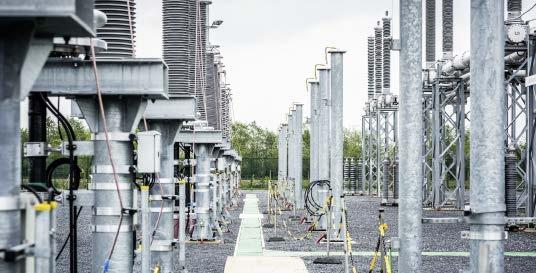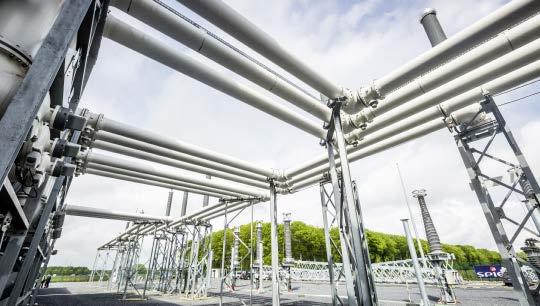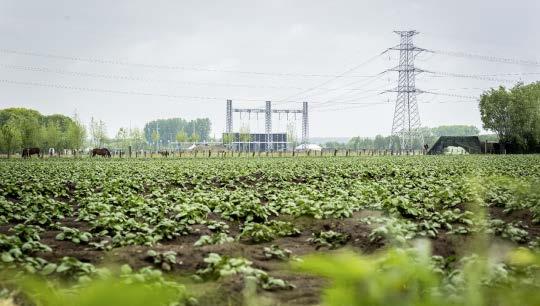
2 minute read
Belgium and its neighbours
Future price differences between Belgium and its neighbours will depend on the energy mix of the neighbouring countries. With the increase of RES, more differences might appear depending on the pace of penetration of (close to) zero marginal cost renewables in the system. Given the assumptions considered for each country, we can observe that: — In the future, GB average wholesale price could become cheaper than the continent if no additional reinforcements are planned between GB and the rest of Europe. This is mainly driven by additions of wind generation planned in
GB. In some scenarios, this difference is above 10 €/MWh. The
‘GRID+’ sensitivity shows how additional grid investments between European countries will attenuate this spread; — In a ‘Decentral’ scenario, France might become even cheaper relying on more PV (with a higher load factor than in northern countries) and benefitting from the increase in its neighbours (Spain, Italy). In the ‘Large Scale RES’ scenario, the inverse trend is observed as northern countries are relying on wind and are hence cheaper than France. The nuclear phase-out in France will also be a key driver for the wholesale price in the country; — Germany is cheaper than Belgium in ‘Base Case’ and
‘Decentral’ in 2030. In the rest of the scenarios, Belgium is cheaper which is linked to the key position of the country benefitting from the diversified energy mix (wind, PV, nuclear,...) of its other neighbours (GB and FR);
— The Netherlands stays in the range of Belgian prices.
Depending on the scenario, spreads up to 2 €/MWh on average are observed.
— Additional flexibility in the system will reduce the spreads between the countries. It could reduce the price in southern countries with a large penetration of decentral generation by storing the surplus during the day and releasing it after sunset. The effect of Spain and Italy on France can be observed when comparing the ‘FLEX+’ scenario to the
‘Decentral’ scenario;
— More grid investments are beneficial for market integration.
Additional corridors allow the countries to share the excess of renewables and enhance the price convergence by utilising the optimal resources in each region.
WHOLESALE MARKET PRICE DIFFERENCE BETWEEN THE OTHER COUNTRIES AND BELGIUM IN THE DIFFERENT
SCENARIOS IN THE MOST OPTIMAL SETTING - ‘GAS-BEFORE-COAL’ (FIG. 138) (negative = price in the neighbouring countries is lower)
2030 2040
BC
-0.7 -1.2
-1.7
-2.2 -20.8 -1.8
+2.4 0
Average price difference in €/MWh between the other countries and Belgium








